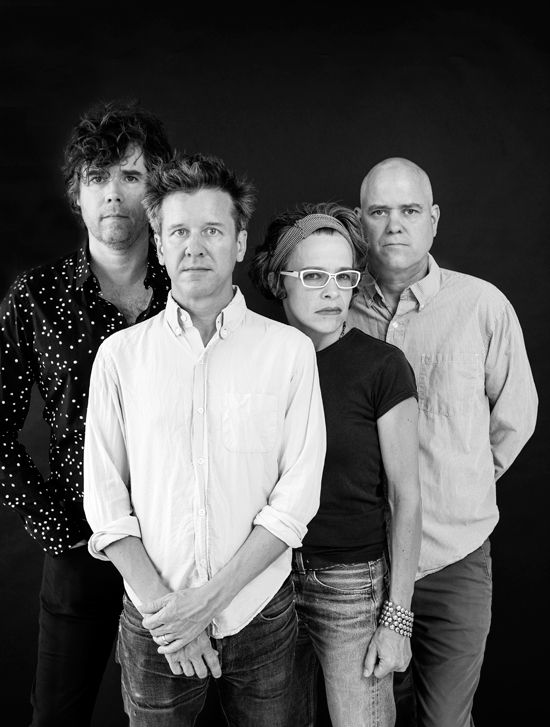
Indie-rock institution Superchunk tempers a grim worldview with uplifting punk melodies
Given the subject matter of Superchunk’s 11th record, it’s an appropriate coincidence that MAGNET happens to be speaking with singer/guitarist/primary songwriter Mac McCaughan on the anniversary of the United States inaugurating an orangutan with no impulse control to the highest office in the land.
“After the election last year, I wrote to a friend and said, ‘This is worse than Reagan, right?’” says McCaughan. “Because Reagan was terrible, and that was certainly the establishment that hardcore bands were often singing about when I was growing up in the early ’80s. But this just seemed way worse, for some reason. I was wondering if it was just because I’m older and just know more, having to experience the ramifications more, having kids, etc. I think it is worse.”
With tongue planted firmly in cheek, Superchunk’s latest is dubbed What A Time To Be Alive (Merge), its title track lamenting “the scum, the shame, the fucking lies.” This palpable anger and frustration is one of the unifying threads on the album, recorded by the longtime lineup of McCaughan, guitarist Jim Wilbur, drummer Jon Wurster and bassist Laura Ballance (McCaughan’s Merge partner). The other unifying element is the fact that in Superchunk’s hands, even songs about Armageddon can be made to sound hopeful.
“I have a hard time writing a song and just leaving it bleak,” says McCaughan. “But the music itself has its own mood. When you’re listening to the music and it’s just right in line with the meaning of the lyrics, it can just be too much. Too on the nose or something. It’s more interesting when there’s a counterpoint. You can be kind of humming along and enjoying it on one level, but then you listen to the lyrics, and you’re like, ‘This is kind of rough.’”
“The lyrics aren’t necessarily the thing to focus on,” counters Wilbur. “We’re still just trying to be a band that plays rock music. It just so happens that what’s preoccupying the lyrics now is just what we’re all thinking about. It’s not the time to write love songs or songs about anything esoteric. That said, if you just listen to it, you can hear it like a Superchunk song.”
The duality of the record is typified by “Reagan Youth,” celebrating the punk band of the same name in a joyous mosh-pit singalong, while skewering the generation Reagan Youth was lampooning. “If you grew up with punk rock, you knew about that band,” says McCaughan. “At the same time, the reason they called themselves that is because there was this generation of young conservatives that grew up in that era. To me, that’s what you’re dealing with when you deal with someone like Paul Ryan. They turned out even worse than you would’ve thought.”
As you would expect of a record with a politi-punk ethos, it was hastily recorded in two sessions last year that McCaughan describes as “a quick reaction—an emotional reaction to what’s going on. Both sides of that. In other words, how dire things are and feel and, on the flip side, how you deal with that.” This immediacy is most fully realized with “Cloud Of Hate,” written in the studio when the band members had an hour left before tearing down the drums and realized they didn’t know any cover songs to fill the time. It’s a hardcore rager with McCaughan declaring, “You broke the world that you’re not long for.”
Asked if he has any hopes for the future, McCaughan is conflicted. “It’s a rollercoaster,” he says. “Some days I think they’re just undercutting everything to the point where all the protections that were supposed to be in place are going to be gone when they’re done. Part of me thinks that they’re just so outlandish that’s there’s no way that they can hold on to power for very long. In the meantime, though, look at what they’re doing to immigrant communities, poor people and anyone else they want to prey upon. It’s frightening even though you know it’s going to end at some point.”
—Matt Ryan






